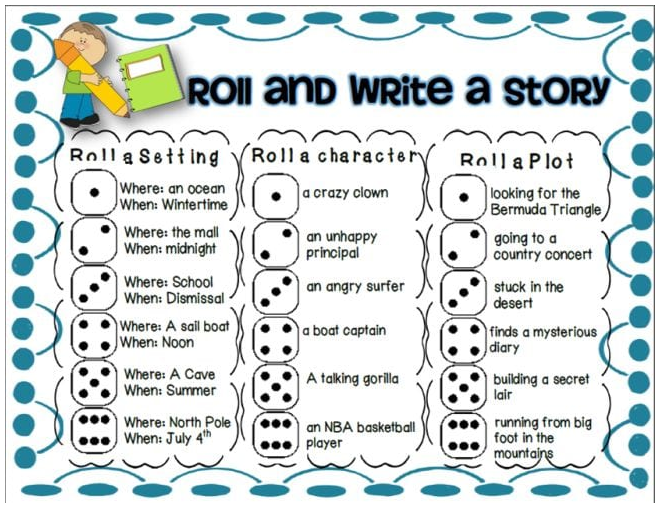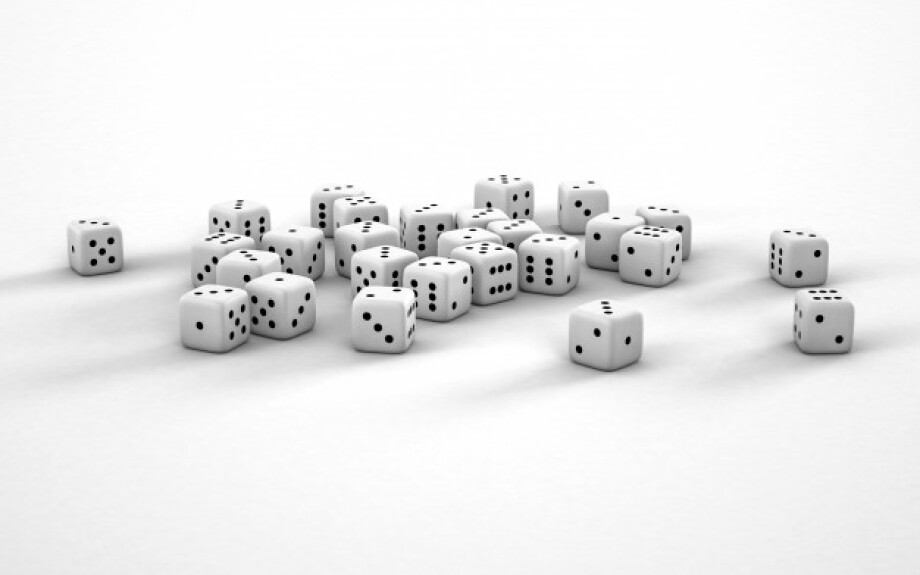From time to time every teacher faces the situation when he/she lacks access to well-planned and sophisticated materials, aids, textbooks, etc. However, it often turns out that the most sophisticated tools ever created are our imagination and a dice! Dice are portable and suitable for any age. It’s a great source for learning activities, it has endless options limited by your creativity only. This simple tool effects learners’ engagement and motivation. Dice can be bought (it’s better to buy some sets and have them with you all the time), or made (use this website), or even used online.
So let’s roll!
How can we use dice to make a lesson more interesting?
- To choose students for activities (e.g. you can think of a number (3, for example), make the students throw dice and the one who has 3 does the task).
- To group students (e.g. those who have even numbers on a dice work in one group, those with odd ones in another).
- To choose the level of difficulty in games. (e.g. 1 means the easiest task and 6 — the most challenging one).
- To decide who goes first in presentations (e.g. a person who has the biggest number on a dice delivers his/her presentation the first).
- To organize speaking and writing activities (e.g. you may like a dice with topics on its sides; you can actually take a big base dice and every time stick different tasks on its sides depending on your teaching needs).
- To learn grammar (e.g. the numbers 1 to 6 mean various grammar structures, tenses to practise, etc.).
Dice games you will love
1. Roll a Word
Set a list of words, give each of them a number (you may need more than one dice). Students roll dice and based on the number choose a word and a task to do with it:
1: Give its definition
2: Give its synonym
3: Write a sentence using the word
4: Draw a picture
5: Mime it
6: Give its antonym
2. Letter List Warmer
It’s a spelling improving activity. Choose any letter of alphabet and ask a learner to roll the dice. The task is to produce a list of as many words beginning with that letter as the dice number shows. For example, if the letter is ‘D’ and the number on the dice is ‘4’, a student might make up a list: dog, drama, daughter, duck. The words will depend on the level of a student’s skills. You may also set up a particular category or a topic for the list, e.g. nouns, irregular verbs, nature/family/job vocabulary, etc.
3. Grammar Questions
Create a list of questions on the grammar topic you want to practise with your students. For example, Conditional II:
- If you could go anywhere in the world, where would you go?
- If you were stranded on a desert island, what three things would you want to take with you?
- If you could eat only one food for the rest of your life, what would it be?
- If you won a million dollars, what is the first thing you would buy?
- If you could spend the day with one fictional character, who would it be?
- If you found a magic lantern and a genie gave you three wishes, what would you wish?
Ask a student to roll the dice to choose a question to answer. Actually, any grammar topic or structure can be worked on like that.
4. Roll and Write
A cool way to improve your students’ writing skills is a writing dice game like this

It offers a lot of possible combinations of a story plot and main characters and can be adapted to any level and learning purpose. Or you may want to offer 12 characters, 12 locations, 12 verbs to use. Each roll of the dice continues the story. Before long, they’ll be generating dozens of ideas and plot lines.
5. Roll the Topic of Conversation
Display a set of topics and corresponding dice numbers. Have students roll the dice and choose one to discuss in pairs or to prepare a 2-minute-speech, whatever. This activity is good to summarize a lexical topic, to check reading comprehension, to set up debates.
6. Board Games
Here you can find and print out a board game relevant to the topic you want to focus on with your students. Have them play the games using a dice for prizes, bonuses or other incentives.
Dice games are cheap and exciting ways that can be tailored to any concept you want to teach. You can always modifying the dice putting needed words, phonemic symbols, pictures on the sides it. The roll of a dice can decide on a task, way to perform the task, requirements for it, vocabulary or grammar structures to use, etc.






 Олеся Яресько
Олеся Яресько 
 Диляра Биктагирова
Диляра Биктагирова 

 Маргарита Аветисян
Маргарита Аветисян 
